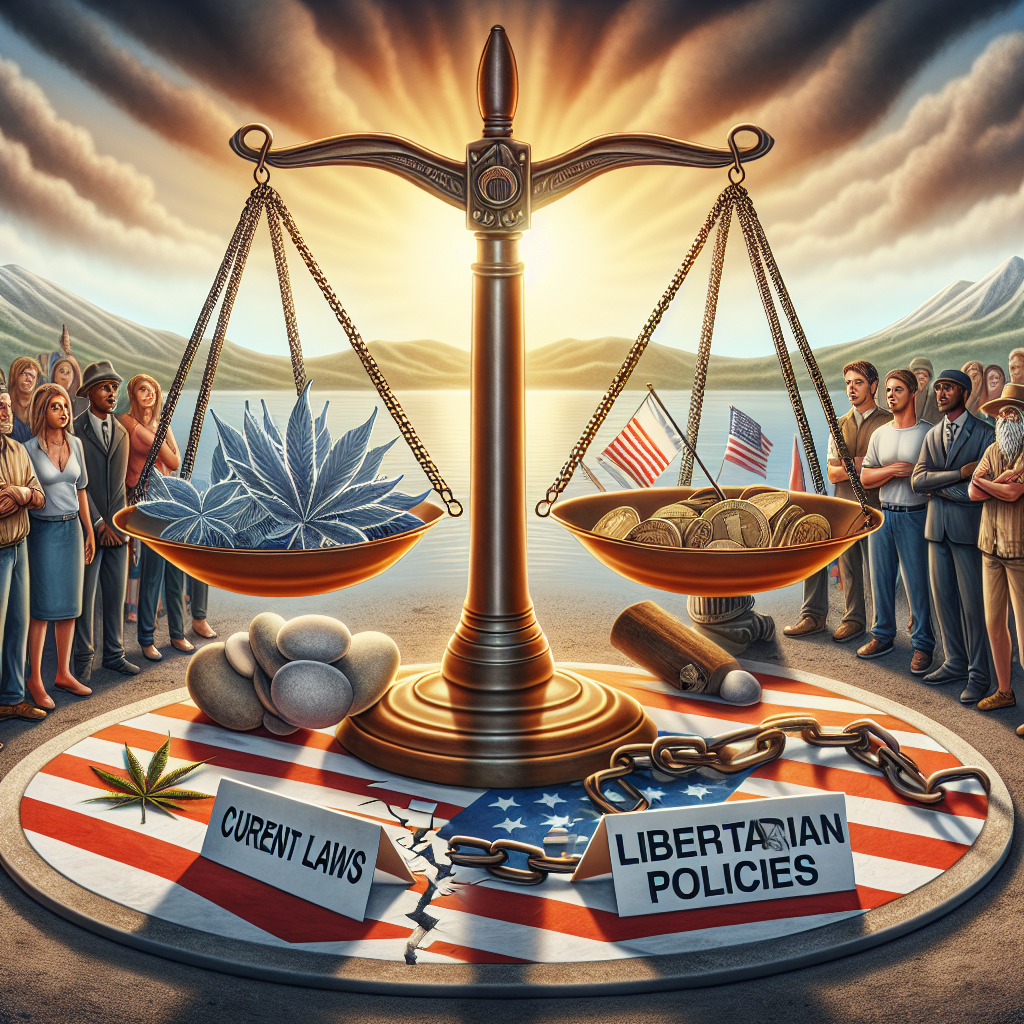Libertarian Policies for Criminal Justice Reform: Ending the War on Drugs
The conversation surrounding criminal justice reform has intensified over recent years, with many advocating for an overhaul of outdated policies. Among these advocates, Libertarians stand out with their unique approach, particularly in relation to drug policy. This article will explore the key Libertarian policies aimed at criminal justice reform, focusing primarily on the urgent need to end the War on Drugs.
Understanding the Libertarian Perspective on Criminal Justice
Libertarians champion individual liberty and personal responsibility. They believe that the government should have minimal involvement in the lives of its citizens, especially when it comes to personal choices. This foundational belief extends to their approach to criminal justice reform, where they argue against punitive measures that negatively impact society and individuals.
The Ineffectiveness of the War on Drugs
The War on Drugs, declared in the 1970s, aimed to reduce drug use and trafficking through strict law enforcement. However, decades of evidence suggest that these efforts have largely failed.
-
Incarceration Rates: The United States holds the highest incarceration rates in the world, with a significant portion attributed to drug offenses. Libertarians argue that these numbers reflect not a failure of individuals, but a failure of policy.
-
Community Impact: Harsh drug laws have disproportionately affected marginalized communities, leading to cycles of poverty and crime. Libertarians advocate that repealing these laws could help mend the social fabric destroyed by such policies.
- Economic Costs: The financial burden of enforcing drug laws is staggering. With billions spent on law enforcement, courts, and prisons, Libertarians promote reallocating these resources to more effective social programs.
Key Libertarian Policies for Reform
Libertarians propose a series of policies aimed at reforming drug-related laws and reducing the negative impacts of the War on Drugs. Here are some of the most significant reforms advocated by the Libertarian movement:
1. Decriminalization of Drug Use
One of the cornerstone policies of Libertarians is the decriminalization of drug use. Unlike legalizing all drugs, decriminalization would mean that individuals would not face criminal charges for personal use. This shift could lead to:
-
Reduced Incarceration Rates: Thousands of individuals currently imprisoned for drug possession would be released, allowing them to reintegrate into society.
- Increased Individual Autonomy: Adults should have the right to make choices about their own bodies without government interference.
2. Regulatory Framework for Legalization
For substances that are to be legalized, Libertarians advocate for a regulatory framework that ensures safety and quality without imposing heavy restrictions. This would allow:
-
Tax Revenue Generation: Revenue from taxes on legal drugs could fund education and treatment programs rather than incarceration.
- Consumer Protection: Legalized markets can lead to safer products free of contaminants common in illegal drugs.
3. Focus on Treatment and Rehabilitation
Rather than punishing drug users, Libertarians emphasize treatment and rehabilitation as a more effective response to drug addiction. Policies promoting:
-
Access to Treatment Centers: More resources should be directed towards mental health and addiction treatment facilities.
- Education Over Criminalization: Community education programs about the risks of drug use can help inform citizens without resorting to punitive measures.
The Broader Implications of Ending the War on Drugs
Ending the War on Drugs is not only a Libertarian concern; it has wide-ranging implications for society as a whole.
Social Justice and Equality
The drug war has perpetuated systemic inequalities, disproportionately affecting communities of color. Libertarian reforms could lead to greater social equity and justice.
Economic Growth
Redirecting funds from law enforcement to treatment and education can stimulate local economies. By decreasing incarceration rates, individuals can fully participate in the economy, leading to a healthier workforce.
Public Safety
By focusing on treatment rather than punishment, communities may experience reduced crime rates and increased safety as public health approaches take precedence over law enforcement tactics.
Conclusion: A Call for Libertarian Reform in Criminal Justice
Libertarians advocate for a fundamental shift in how society approaches drug use and criminal justice. By ending the War on Drugs, we can create a more just, equitable, and productive society. Embracing these policies not only holds the potential for significant social change but also aligns with the core Libertarian values of personal freedom and responsibility. It’s time to reconsider the old paradigms and move toward a more compassionate and effective criminal justice system.
Share this content:












Post Comment